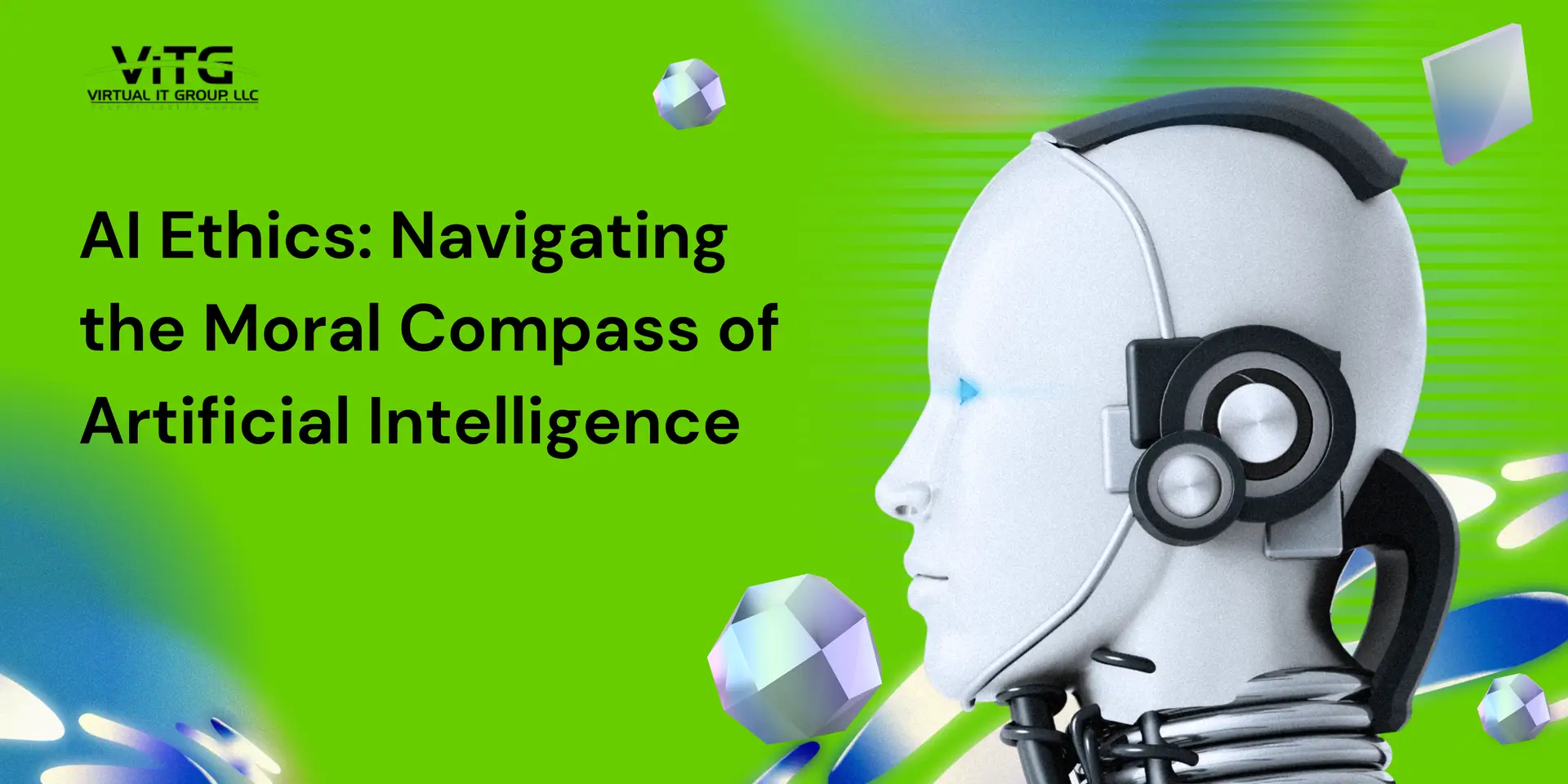Artificial intelligence (AI) is rapidly transforming our world, with applications permeating every aspect of life. From facial recognition technology to self-driving cars, AI promises to revolutionize industries, improve efficiency, and enhance human capabilities. However, alongside its immense potential lies a growing concern: the ethical implications of AI.
As AI becomes increasingly sophisticated, navigating the ethical landscape becomes crucial. Defining the moral compass of AI demands a proactive approach – one that expects potential risks and sets up ethical frameworks for development and deployment.
The Ethical Minefield: Potential Pitfalls of AI

The ethical concerns surrounding AI are multifaceted and complex. Here are some key areas demanding scrutiny:
- Bias and Discrimination: AI algorithms learn from the data they are trained on. Unfortunately, real-world data often reflects societal biases, which can be perpetuated by AI systems. This can lead to discriminatory outcomes in areas like loan approvals, facial recognition software, and recruitment processes.
- Privacy Concerns: AI systems often require vast amounts of data to function effectively, raising concerns about data collection, storage, and usage. The potential for privacy violations and unauthorized access to sensitive information needs robust data protection measures.
- Autonomy and Control: As AI systems become increasingly autonomous, questions arise about accountability and decision-making. Who is responsible if an AI-powered system makes a harmful or unethical decision?
- Job displacement and societal impact: The automation potential of AI raises concerns about widespread job losses, particularly in sectors like manufacturing and transportation. The impact on society requires careful consideration and planning to ensure a smooth transition and mitigate negative consequences.
Guiding Principles for Responsible AI Development
To navigate these ethical complexities, a set of guiding principles for responsible AI development is essential. Here are some key considerations:
- Transparency and Explainability: AI systems should be designed with transparency and explainability in mind. This allows developers and users to understand how AI decisions are made, fostering trust and accountability.
- Human oversight and control: Despite advances in autonomy, human oversight is still crucial. AI systems should be designed to run within defined parameters and with human supervision in sensitive applications.
- Data privacy by design: Ethical AI development prioritizes data privacy from the outset. Robust data security measures, user consent for data collection, and adherence to data protection regulations are essential.
- Equity and fairness: The development and deployment of AI should be inclusive and promote fairness across diverse demographics. Bias mitigation techniques must be implemented to ensure AI systems run without discrimination.
- Societal Impact Assessment: A thorough assessment of the potential societal impact of AI systems is crucial before deployment. This helps mitigate potential harm and ensure AI serves the greater good.
The Role of Stakeholders in Upholding AI Ethics
The ethical development and deployment of AI is a shared responsibility. Here’s how different stakeholders can play a part:
- Tech Developers: Developers have the primary responsibility to integrate ethical considerations into the design, development, and testing of AI systems.
- Governments and Regulatory Bodies: Governments can prove clear guidelines and regulations for responsible AI development and data privacy.
- Businesses: Businesses deploying AI solutions should prioritize ethical considerations and ensure transparency in their use of AI.
- Individuals and Consumers: Individuals have a right to be informed about how AI is used and to have control over their data.
- Ethics Experts and Philosophers: Ability in ethics and philosophy plays a critical role in shaping the ethical framework of AI development and deployment.
Organizations seeking guidance through the complexities of data security and AI implementation can receive help from collaborating with a reliable managed IT services provider.
Contact an IT security expert to discuss best practices for implementing AI solutions ethically and securely. Contact us for more collaborative support.
By fostering collaboration and prioritizing ethical principles, we can ensure that AI is a force for good that benefits all of humanity.
The Future of AI: A Collaborative Effort for Responsible Innovation
The future of AI holds immense potential for progress and positive change. However, without careful consideration of the ethical implications, AI can worsen existing inequalities and pose significant risks. By embracing collaboration between developers, policymakers, ethicists, and the public, we can ensure that AI is developed and deployed responsibly, ethically, and with the well-being of society at the forefront.

